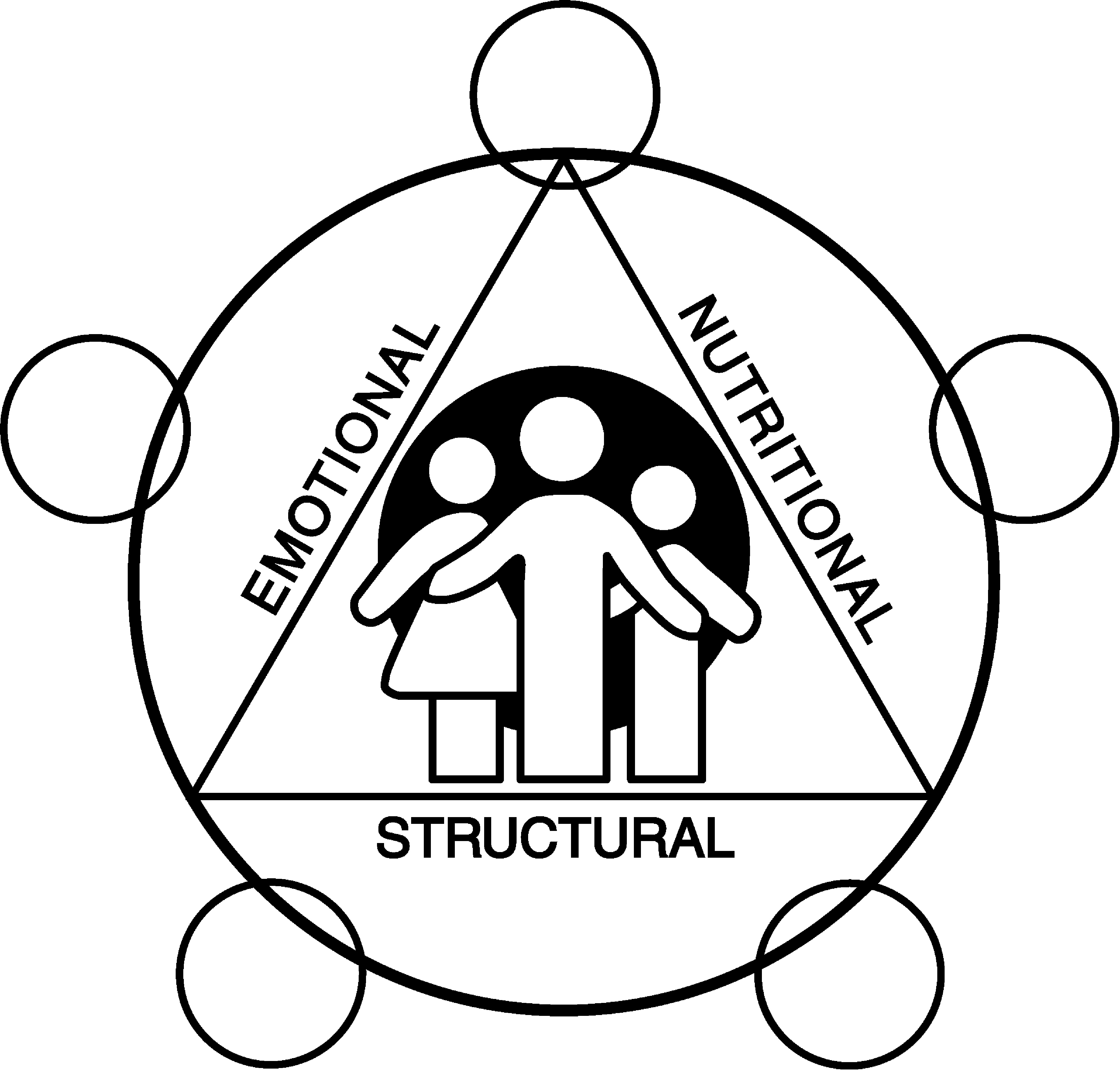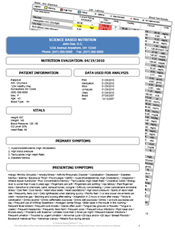“Vitamin D deficiency and its consequences are extremely subtle, but have enormous implications for human health and disease. It is for this reason that vitamin D deficiency continues to go unrecognized by a majority of health care professionals.” —Dr. Michael Holick, University of Boston
Vitamin D is a hormone that needs sunlight in order for the body to produce it. There are many factors that can affect the body’s ability to make and absorb vitamin D. Such variables include where you live, the different seasons, time spent outside, skin pigmentation, age, and absorption capacity.
Vitamin D’s benefits have been widely studied. However, most Americans are deficient in vitamin D and daily multivitamins don’t provide enough. Compelling research has demonstrated that vitamin D blood levels in the range of 50 to 80 ng/mL are associated with reduced mortality and a lower risk of common diseases.1
For the next 2 issues, we’ll take a look at some of the research with vitamin D and how it benefits many of these common diseases.
Pregnancy Complications
It is unlikely that your prenatal vitamin has adequate amounts of vitamin D. Check the label, but most prenatals have around 400IU per capsule. Individual requirements vary depending on your current level of serum vitamin D, but starting with around 5,000 IU of vitamin D per day is recommended. “Women in studies who took 4,000 IU of the vitamin daily in their second and third trimesters showed no evidence of harm, but they had half the rate of pregnancy-related complications as women who took 400 IU of vitamin D every day” says neonatologist and study co-researcher Carol L. Wagner, MD, of the Medical University of South Carolina. In the study women who took 4,000IU of vitamin D a day were half as likely to develop gestational diabetes, pregnancy-related high blood pressure, or preeclampsia.2
Optimal levels of Vitamin D have been shown to prevent preterm birth. This study followed over 2,000 mothers with serum 25-hydroxyvitamin D less than 50 nmol/L were and found that they were 1.5 times more likely to deliver preterm at 37 weeks or sooner than those with the serum levels at just 36 ng/ml which is still lower than the recommended range!3 Among African-American and Hispanic populations, up to 70% to 75% of all preterm births might be prevented with higher levels of Vitamin D.4
There are numerous benefits of delivering your baby at forty weeks and beyond. If your doctor recommends that you deliver at 39 weeks or sooner, question the health of the baby and yourself. Ask about the necessity of an early delivery. Babies born at or after forty weeks have better brain development, better suckling reflex for breastfeeding, are less likely to suffer from jaundice, respiratory problems, allergies, labor complications and interventions (Around 15% of inductions required an assisted birth such as a forceps delivery) and so much more.4
You can track your vitamin D status through pregnancy for free by registering at Grassrootshealth.net. Serum testing is the only way to find out if you are deficient in vitamin D. Always consult with your experienced health professional before starting any supplementation program.
Hormone Imbalance
In our industrial society, we are exposed to many factors that affect our hormone status. Optimal hormonal balance is something that many women try to achieve. However, with factors such as pollution and environmental toxins, processed foods, soy, chemical exposures in our homes and work environments, we are exposed to xenoestrogens that cause a disruption in balance. One of the most important ways to achieve hormone balance is to find the disruptive cause and to take nutritional support to help reduce the damage the toxic elements can cause. A study in 2010 showed that high doses of vitamin D lowered estradiol, a form of estrogen, and progesterone. Estrogen dominance is one of the main causes of infertility, breast cancer, and a host of other problems.15 In fact, did you know that studies have shown that 70% of women diagnosed with breast cancer are Vitamin D deficient?16
Testing is KEY
Next month, we’ll talk about Vitamin D and its relationship with Cancer, Cognitive Function and Heart Disease. But don’t wait until then to get tested! In fact, if you’re low in Vitamin D, chances are you’re deficient in other nutrients as well and there may be other health conditions causing low levels of vitamin D. Screenings for these are part of our routine tests. Finding out where your nutritional status lies and getting a good baseline is recommended at any age. Let us guide you down the right path with an individualized plan that is constructed specifically towards your needs. Let us help you with a safe natural option to do something better today that will enhance your health tomorrow.
References
- Available at: http://www.lifeextension.com/magazine/2010/1/startling-findings-about-vitamin-d-levels-in-life-extension-members/page-01. Accessed March 15, 2016
- Carol L. Wagner, MD, neonatologist and pediatric researcher, Medical University of South Carolina, Charleston.
- Obstetrics & Gynecology February 2015 – Volume 125 – Issue 2 – p 439–447
- 40 Reasons To Give Your Baby 40+ Weeks Of Pregnancy. BellyBelly. Updated on September 28, 2015.
- Grant WB. An estimate of premature cancer mortality in the US because of inadequate doses of solar ultraviolet-B radiation. Cancer. 2002;94(6): 1867–1875.
- Robsahm TE, Tretli S, Dahlback A, Moan J. Vitamin D3 from sunlight may improve the prognosis of breast-, colon- and prostate cancer (Norway). Cancer Causes Control. 2004 Mar;15(2):149-58.
- Esther M. John,2 Gary G. Schwartz, Darlene M. Dreon, and Jocelyn Koo. Vitamin D and Breast Cancer Risk: The NHANES I Epidemiologic Follow-up Study, 1971–1975 to 1992 Northern California Cancer Center
- Vitamindcouncil.com. Accessed on March 10, 2016.
- Achinger SG, Ayus JC. The role of vitamin D in left ventricular hypertrophy and cardiac function. Kidney Int Suppl. 2005 Jun;(95):S37-S42.
- Vieth R. Vitamin D supplementation, 25-hydroxyvitamin D concentrations, and safety. Am.J Clin Nutr. 1999 May;69(5):842-56.
- J Am Coll Cardiol. 2003 Jan 1;41(1):105-12.
- Vitamin D deficiency increases risk of heart disease. University of Copenhagen. September 24, 2012
- Link found between Vitamin D deficiency and dementia. Alzheimer’s.net. October 29, 2015. Accessed on March 10, 2016.
- Vitamin D Status and Rates of Cognitive Decline in a Multiethnic Cohort of Older Adults. JAMA Neurol. 2015;72(11):1295-1303. November 2015.
- Joshua W. Miller, PhD; Danielle J. Harvey, PhD; Laurel A. Beckett, PhD, et.al. Vitamin D Status and Rates of Cognitive Decline in a Multiethnic Cohort of Older Adults JAMA Neurol. 2015;72(11):1295-1303
- Women with breast cancer have low Vitamin D levels. University of Rochester Medical Center. October 10, 2009

